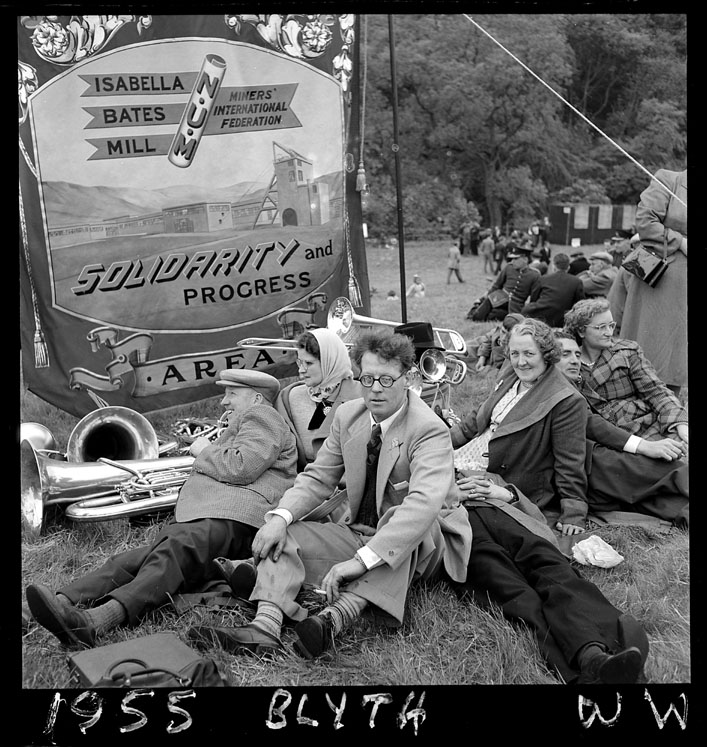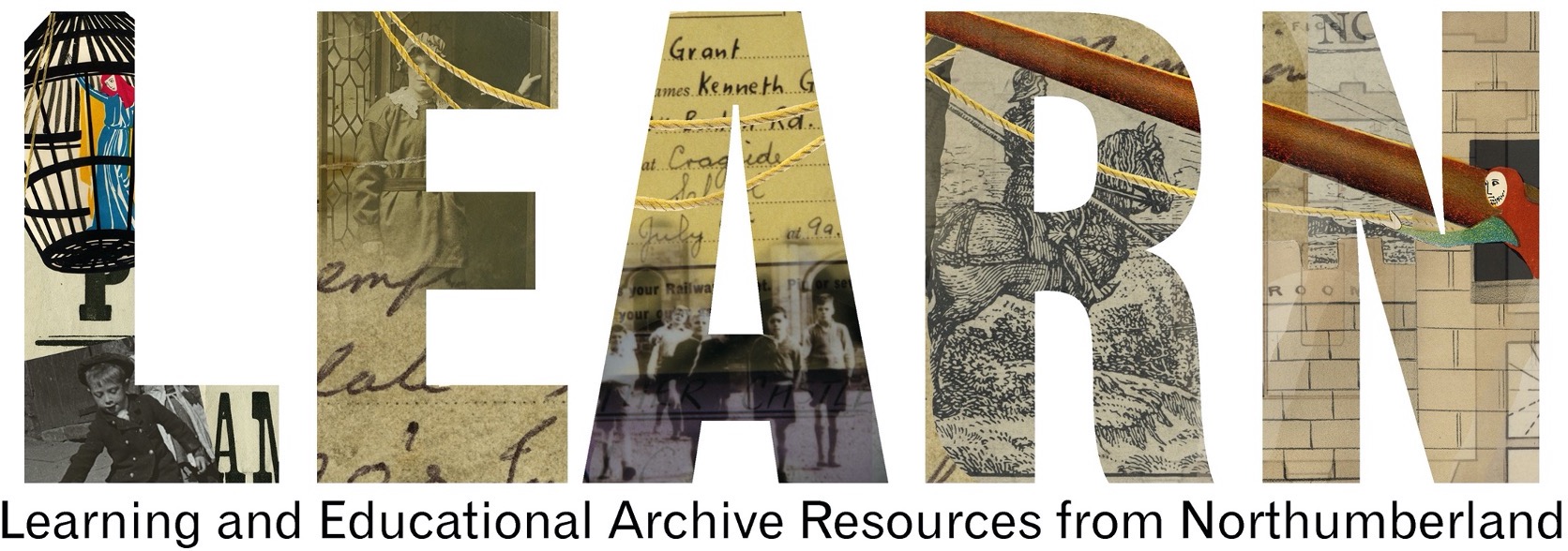Home » LEARN » LEARN Mining » Oral History of an Anonymous Woman, Former Resident of Morpeth
Oral History of an Anonymous Woman, Former Resident of Morpeth
Reference: T/6A, Image: NRO 6371/23
Suggested age groups: KS1, KS2, KS3, KS4, Lifelong Learners
Subject areas: History, Literacy, Politics

CONTEXT
These sound files are extracts (short, edited pieces) from longer oral history interviews preserved by Northumberland Archives. These interviews were made as part of a project to collect the memories of people who lived and worked in Morpeth; “Memories of Morpeth,” 2011.
The Miners’ Picnic was happy for some but not others because of the silly people who had too much to drink. It moved from Morpeth to Bedlington in the 1950s. She remembered the parades and the different children’s rides. It was a family day. She did not listen to the speeches as they were not her kind of thing. She was still member of the Conservative Association.
The first few picnics took place in Blyth, but it was also held in Morpeth for a number of years and was associated with Bedlington in the 1950s-1970s. The event also took place in Tynemouth, Ashington and on the Town Moor in Newcastle. Since the closure of the mines, Museums Northumberland has taken over the organisation of the Picnic. The Picnic has been held at Woodhorn Museum near Ashington since 1992.
The Picnics were made up of a series of events. To begin with, representatives of the mining communities would march to the meeting place. Each mine would have its own banner and many would also have a brass band that would accompany them on the procession.
The brass bands entered competitions which were judged on the day of the Picnic. Winning bands were awarded trophies (Burt Challenge Cup and Northern Divisional Coal Board Challenge Cup).
Communities from around the county also chose beauty queens. Each colliery queen would then compete to become “Picnic Queen” or “Labour Queen” at the Picnic. These two Queens would then sit on a float at the beginning of the procession.
Once the procession was over speeches would be given by local and national political figures. Famous speakers at the Picnics included Betty Boothroyd, Clement Atlee, Hugh Gaitskell, Aneurin Bevan and Michael Foot.
There were also entertainments for children, including games, funfairs and food.
ACTIVITIES
ACTIVITY 1
Background
The Miners’ Picnic was happy for some but not others because of the silly people who had too much to drink. It moved from Morpeth to Bedlington in the 1950s. She remembered the parades and the different children’s rides. It was a family day. She did not listen to the speeches as they were not her kind of thing. She was still member of the Conservative Association.
SEE
See: Where did the Miners’ Picnic take place originally?
See: Where did the Miners’ Picnic move to in the 1950s?
See: Why was the Miners’ Picnic happy for some but not for others?
See: What took place at the Miners’ Picnic?
THINK
Think: What were the aims of Miners’ Picnics?
Think: Who organised the Miners’ Picnic?
Think: What are trade unions?
Think: Which political party is mining associated with?
Think: Which political party would the speakers at the Miners’ Picnic likely be from?
Think: Why did political speakers attend Miners’ Picnics?
Think: Who might speak at a Miners’ Picnic today?
Think: How were political messages conveyed at Miners’ Picnics?
Think: What is the Conservative Association?
Think: Why might the speeches not have appealed to the lady giving the oral history?
Think: What can you infer about the person giving this oral history?
DO
Do: Compare this oral history to John Caffrey’s oral history and the essay written by Christine Wintrip . How do the three give contrasting views of the Miners’ Picnic?
Do: Discuss why people might have different impressions of the Miners’ Picnic.
Do: Research some of the political figures who spoke at Miners’ Picnics. Create a political biography for each political speakers mentioned in this document.
Do: Discuss why each of the speakers might have been chosen to speak at the Picnics? What is their correlation to the mining community?
Do: Discuss how people from different political parties may have different opinions about Miners’ Picnics and the mining community.
Do: Choose one of the speakers. Write a speech that they may have given at the Miners’ Picnic. Think about their connection to the mining community, the aims of the Miners’ Picnic and the message they might have wanted to give.
Resources
ACTIVITY 2
Background
These sound files are extracts (short, edited pieces) from longer oral history interviews preserved by Northumberland Archives. These interviews were made as part of a project to collect the memories of people who lived and worked in Morpeth; “Memories of Morpeth,” 2011.
SEE
See: Why were these oral histories recorded?
See: Who took part in these oral history interviews?
See: What is included in the oral history extracts?
THINK
Think: What is an oral history?
Think: Why is it important to record oral histories?
Think: What is the value of oral histories?
Think: What useful information can we learn from this oral history?
Think: Who might use oral histories?
Think: How might this oral history be used and by whom?
Think: How reliable are oral histories?
Think: What types of oral histories might be recorded?
Think: What does anonymous mean?
Think: Why might someone record an oral history anonymously?
DO
Do: Imagine you are about to interview a someone who lived and worked in the mining community for an oral history. Write down a list of questions or talking points that you might use to prompt them during the interview.
Do: Write down a list of events that have taken place during your lifetime that you think it would be important to create oral history records of.
Do: Write down a list of events that have taken place before your lifetime that you think it would be important to have oral history records of.
Do: Look at the British Library, British Library Sounds and Imperial War Museum websites. Can you find oral history recordings about the events from your lists?
Do: Think of an event that you have experienced first-hand. In pairs, interview each other about your chosen events and create oral history recordings.
Do: Do you think oral history recordings should be made using second-hand stories or should they be made using only first-hand events? Debate this in groups.
Resources
OTHER ONLINE RESOURCES
Oral History
Website for Oral History Society, includes definition of oral history: https://www.ohs.org.uk/
University of Leicester information sheet on oral history (pdf). Although the language isn’t the most accessible it does discuss value and reliability of oral histories: https://www.le.ac.uk/ur/emoha/training/no1.pdf
Website for Glasgow Women’s Library, blog discussing oral history project, includes definition: https://womenslibrary.org.uk/2017/08/09/what-are-oral-histories-and-why-are-they-important/
British Library website, page for oral history collections: https://www.bl.uk/collection-guides/oral-history
British Library Sounds website, includes oral history recordings: https://sounds.bl.uk/Oral-history
Imperial War Museum website page for oral history collections, one of the biggest oral history collections in the country. Many can be searched and listened to online: https://www.iwm.org.uk/collections/sound
Miners’ Picnic
BBC website, description of “Insideout” programme broadcast 7 March 2005: https://www.bbc.co.uk/insideout/northeast/series7/russell_miners.shtml
YouTube website, home movie footage of Bedlington Miners’ Picnic, 19 (about 6 minutes): https://youtu.be/fKipahb9gLI
YouTube website, “Bedlington: A Picnic to Remember”, short documentary about Miners’ Picnic, including interviews (5 minutes): https://www.youtube.com/watch?v=c7iYg1hDtl4
Film of 150th Anniversary Miners’ Picnic at Woodhorn Museum (13 minutes): https://www.youtube.com/watch?v=ooLwEOICN98
North East Museums website, page about Northumberland Miners’ Picnic, including a timeline: https://museumsnorthumberland.org.uk/project/northumberland-miners-picnic/picnic-history

